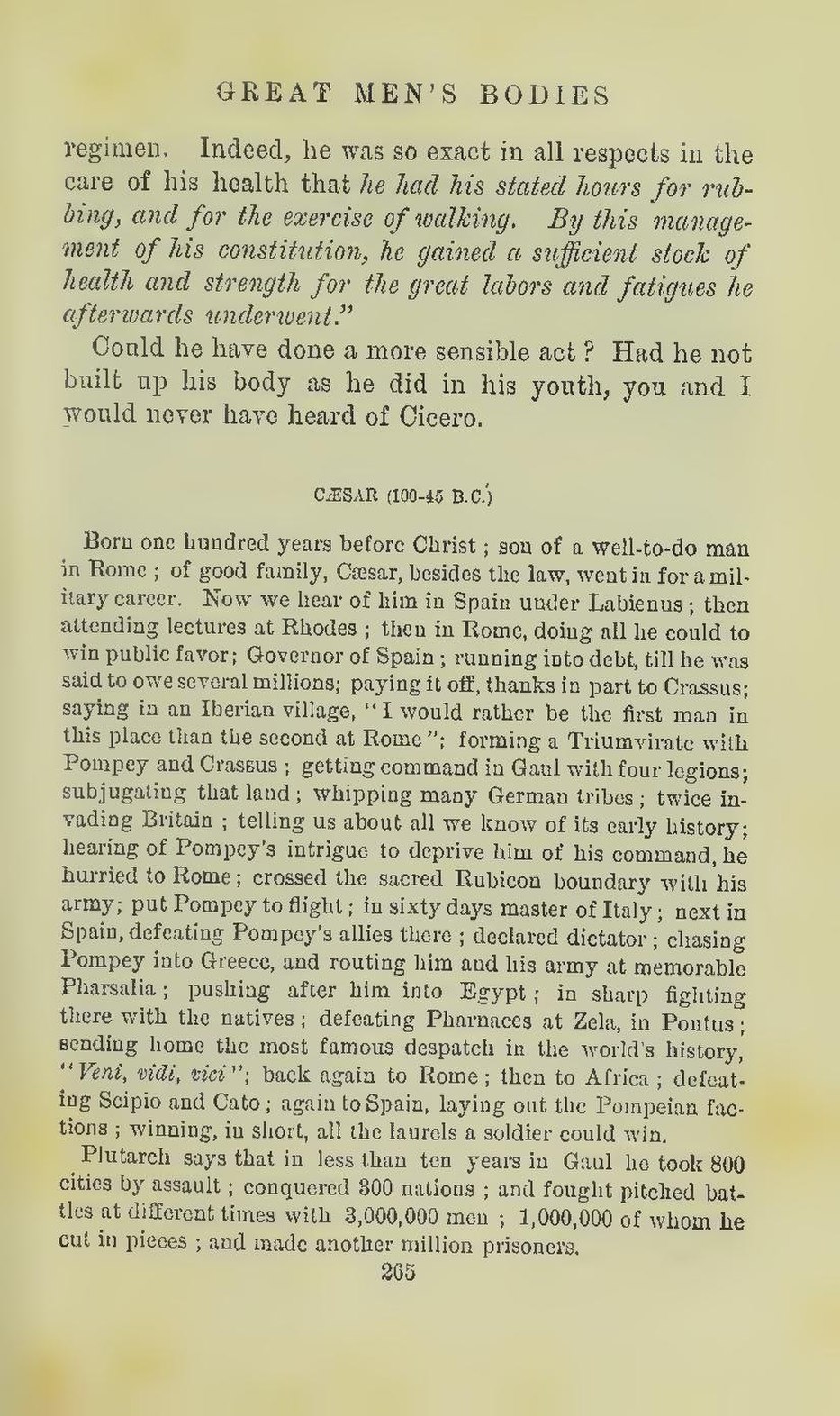This page has been validated.
GREAT MEN'S BODIES
regimen. Indeed, he was so exact in all respects in the care of his health that he had his stated hours for rubbing, and for the exercise of walking. By this management of his constitution, he gained a sufficient stock of health and strength for the great labors and fatigues he afterwards underwent."
Could he have done a more sensible act? Had he not built up his body as he did in his youth, you and I would never have heard of Cicero.
CÆSAR (100–45 B.C.)
Born one hundred years before Christ; son of a well-to-do man in Rome; of good family, Cæsar, besides the law, went in for a military career. Now we hear of him in Spain under Labienus; then attending lectures at Rhodes; then in Rome, doing all he could to win public favor; Governor of Spain; running into debt, till he was said to owe several millions; paying it off, thanks in part to Crassus; saying in an Iberian village, "I would rather be the first man in this place than the second at Rome"; forming a Triumvirate with Pompey and Crassus; getting command in Gaul with four legions; subjugating that land; whipping many German tribes; twice invading Britain; telling us about all we know of its early history; hearing of Pompey's intrigue to deprive him of his command, he hurried to Rome; crossed the sacred Rubicon boundary with his army; put Pompey to flight; in sixty days master of Italy; next in Spain, defeating Pompey's allies there; declared dictator; chasing Pompey into Greece, and routing him and his army at memorable Pharsalia; pushing after him into Egypt; in sharp fighting there with the natives; defeating Pharnaces at Zela, in Pontus; sending home the most famous despatch in the world's history, "Veni, vidi, vici"; back again to Rome; then to Africa; defeating Scipio and Cato; again to Spain, laying out the Pompeian factions; winning, in short, all the laurels a soldier could win.
Plutarch says that in less than ten years in Gaul he took 800 cities by assault; conquered 300 nations; and fought pitched battles at different times with 3,000,000 men; 1,000,000 of whom he cut in pieces; and made another million prisoners.
265
